#james taffe
Text
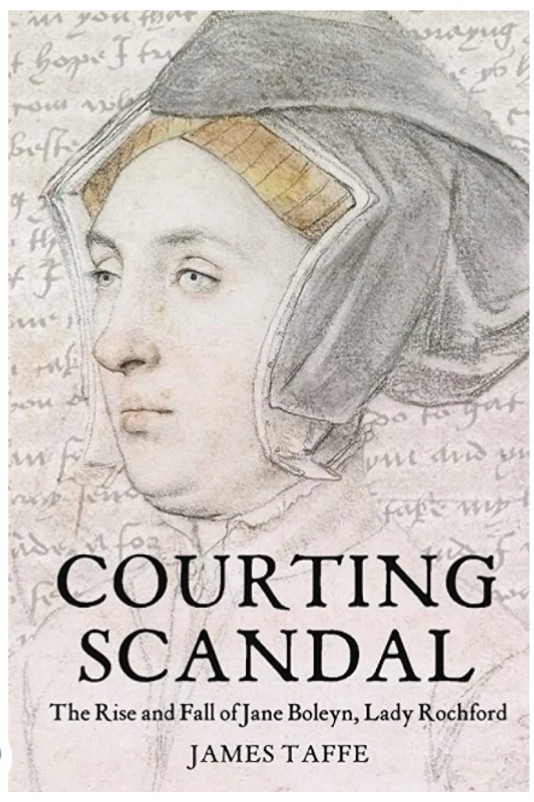
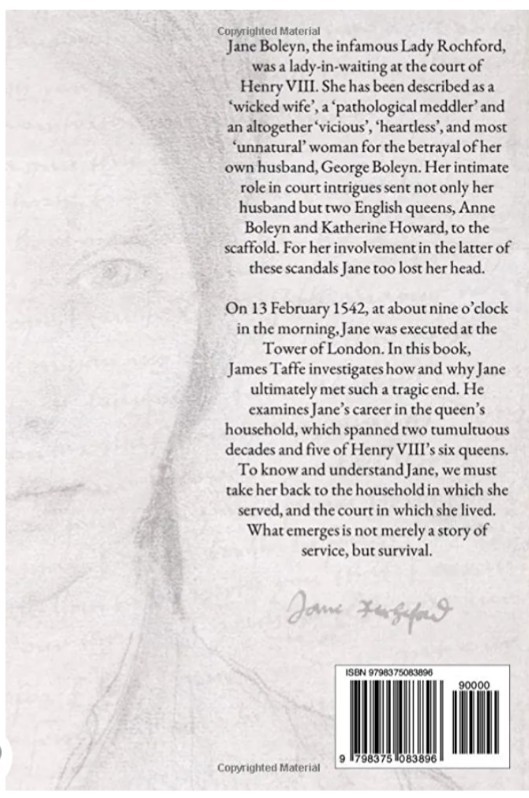
Courting Scandal: The Rise and Fall of Jane Boleyn, Lady Rochford by James Taffe
Just bought the latest book about Jane Boleyn, Lady Rochford, which was published just last week. Cannot begin to tell you how excited I am for another more favourable light to debunk all the myths, lies, and slander about the tragic lady-in-waiting. It's about time we had someone else in her corner 💜
16 notes
·
View notes
Text
Reviewer: this book used dated and discredited sources, mostly secondary sources. Unoriginal use of dated sources will lead to a dated conclusion.
James Taffe:
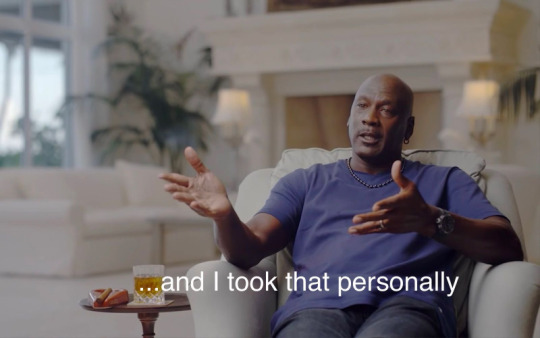
#james taffe#my brother in christ calm down#tudor history#jane boleyn#'i spent YEARS RESEARCHING'#yeah you're an academic now#you're gonna be critiqued...like an academic#jane parker#jane rochford#george boleyn#tudor memes
9 notes
·
View notes
Text
"Serving a Tudor Queen with Dr James Taffe"
youtube
Though it's short, he gives great info on the complex structure of a queen consort's household, focusing on the Tudor consorts. I can't wait to check out his book.
#james taffe#anne boleyn#catherine of aragon#katheryn howard#katherine parr#anne of cleves#jane seymour#Youtube
2 notes
·
View notes
Text
so, i just read a review of BSR where the primary critique seemed to be that the series ‘airbrushed’ anne, that it was a version that ‘took away all her pettiness and cruelty”, airbrushed all her flaws, etc...
now, my primary critique of BSR would probably be that the series lacked texture, and this i would attribute to the limited screen time, made even smaller by the interruptions to the flow of the story (it felt more like that and less like elaboration for those that were not neophytes to the subject matter, was my takeaway from the online response). but i mean...really? i don’t find this to be a salient critique at all, especially considering that it was only three episodes. one of her most unsympathetic moments of the series was her response to her sister’s arrival at court, and that’s just one among many: included was her threat to cromwell as reported by chapuys, the fuller’s account of her ripping the locket off her rival’s neck (embellished with her chasing her as she tries to leave, even, for good measure, calling her a bitch later), and towards the end, she’s very cruel and biting towards elizabeth somerset once she reaches the limit of her patience wrt loaning her money. as for pettiness, she is so to her sister-in-law and vice versa, she’s insensitive to her sister when she scoffs at the role of royal mistress in her presence, and during the period that she’s in that nebulous status, she fully plays footsie under the table with henry in front of his wife, by implication unto ‘bundling’, until catherine leaves the table.
i’m just puzzled, ig, because the online response to AB2021 (very different show tonally, straight drama besides, i know, but just that these are the two most recent centered on AB) as far as i could gauge was that anne was too ‘petty and cruel’. i mean, tbh, i’ve always been confused by this response, because i thought all her moments of vindictiveness or pettiness or cruelty, once contextualized, on balance with her other moments were, well...understandable, even if not excusable (and if anyone wants to elaborate i’m willing to discuss, genuinely curious), borne clearly of frustration and fear for the most part, at worst you could say impatience and short temper on some of the others (even the truly ‘petty’, like the scene with the peacocks, was presaged by another woman being giggly with her husband, so...?)
what is this perfect AB portrayal that is sought, exactly? the straw AB? because to me, it seems like no matter what the depiction portrays, it cannot win. for some it is not ‘authentic’ unless we see every single aspect of her flaws amplified to the utmost, including her treatment of her stepdaughter. for others it is not ‘authentic’ if we do see that and all of the above.
#i don't really know how you can call it 'airbrushing' when mary wasn't even included tho...#like that can definitely be marked as a flaw of the series; that she wasn't#but airbrushing is more applicable if it was depicted but none of anne's fear or vindictivness or anger is included#anyway im just having thoughts lately like... idk lol#it's possible she's just on hiatus and im being unfair but like#it's VERY telling to me somehow that OH made sure to write a (largely unfair imo) scathing review of AB 2021 on her blog#her blog that is mainly about defense of jane boleyn so i do understand why that aspect of the series would upset her#...and has yet to review james taffe's book#like it just seems less like it's about defending historical women and more like it's about castigating the Audacity of portrayals#of any stories centering around AB
6 notes
·
View notes
Text
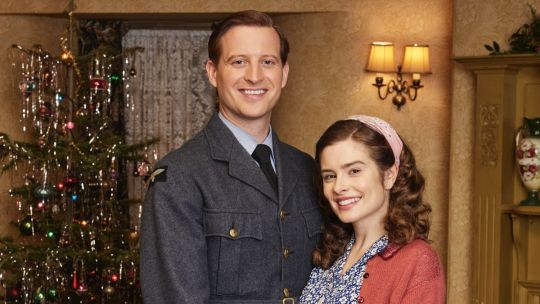
All Creatures Great and Small producer Yvonne Francas gives an inside track on the Christmas episode
All Creatures Great and Small is heading back to our screens for a Christmas special, which is due to be full of seasonal joy and high emotion.
"It’s a journey of love, kindness, and warmth," reveals the show’s producer Yvonne Francas, as What to Watch catches up with her for an exclusive chat to get a sneak preview of the upcoming episode, airing on Channel 5 on Thursday 21 December at 9 pm. It will air on PBS Masterpiece in the New Year after the fourth season.
Set at Yuletide 1940, it sees caring vet James (Nicholas Ralph) spending the festivities away from both Skeldale House and his heavily pregnant wife Helen (Rachel Shenton) as he is training with the RAF.
Here, Yvonne Francas spills the beans on the All Creatures Great and Small Christmas special…
All Creatures Great and Small’s Christmas episodes are always a delight. Is there a pressure to produce something that's heartwarming for the show’s fans?
“Yes, we want to deliver something special. It took 12 to 14 days to film and a couple of months to prepare. It's a pressure but a lovely one to have, because I’ve not worked on another show that’s as loved by its audience.”
How would you sum up this episode?
“It's about the absence of people, because James and Tristan [his fellow vet played by Callum Woodhouse] are away at war and everyone is missing them. But it’s also about community and family coming together. There’s romance and joy, and wonderful animal stories! We even have a fight over who’ll be Father Christmas – Siegfried [Samuel West] doesn’t want that position!"
How is James feeling about being apart from Helen for Christmas?
“James would love to be with Helen, but he's having to accept what serving means, because the people he is with are in the same boat and desperate to get home but they're not allowed…”
And Helen is heavily pregnant now. What has it been like for Rachel to wear the prosthetic bumps?
“We’ve used several prosthetic bumps for Helen in this series and Rachel had an advisor, who used to be a midwife. But Rachel’s amazing and completely gets it!”
We hear the RAF base has an avian mascot that James needs to treat. Is there anything you can reveal about that?
“Yes, the men need their mascot to be fit, as it gives them confidence to do their job. We chose a bird, because it echoes the RAF wings. It’s beautiful and we sent Nick for training to familiarise himself with handling it.
“We also have our regular animals at Christmas like Jess and Dash [Skeldale House’s dogs], Tricki-Woo [Mrs Pumphrey’s beloved pooch] and Oscar the cat. Humbug, who plays Oscar, loves being cuddled! We have another dog too, who isn’t friendly, and Carmody [James Anthony-Rose] deals with that…”
What was it like filming the airbase scenes at the Yorkshire Air Museum at Elvington, near York?
“It’s so authentic. We brought in a Nissen hut and located three planes that still exist that would have flown to train airmen at the time and they flew around for us. I sat in one and you do feel exposed to the elements.
“For the RAF costumes, we used a costumier and also sourced some through our military advisor Taff Gillingham. Nick enjoyed wearing his, it gave him a different demeanour. He looks the part. In one scene, he had to run in the uniform, overcoat and hat and he never complained, even though it was June!”
Was it tough keeping everybody cool when you were filming?
“We had around 115 supporting artistes throughout the Christmas episode, with many in coats and scarves for the party. As it was summer, when we were outside, we had shaded areas and cold drinks and Melissa Gallant, the executive producer, brought ice lollies! Then, in the studio, fans were on and doors were open when we weren’t shooting.”
And what can you tell us about the Christmas community dinner that kindly housekeeper Mrs Hall (Anna Madeley) organises in The Drovers Arms?
“The war affects what they can provide, although Mrs Hall finds an ally who puts their hands on more food and it’s a wonderful spread. Our art department researched what they’d have been able to get hold of and Bethany Heald, our home economist, created some amazing food.”
How hard has it been to recreate a wartime Christmas?
“The art department did research online and in books and magazines. We have paper angels and crepe paper banners because people made their own decorations then and our production base is opposite a Christmas tree farm, so we chose lovely trees.
“There’s a big one in Darrowby’s square and the special effects people created fake snow, which they sieved onto the ground, and they used foam when it needed to come out of the sky, which was supplemented with online visual effects. With roaring fires and carols too, the episode does feel Christmassy!”
The Christmas special of All Creatures Great and Small airs on Thursday December 21 at 9pm on Channel 5 and it will also be available on My5. It will air on PBS Masterpiece early next year.
#all creatures great and small#acgas 2020#acgas spoilers#acgas s4#acgas 4x07#helen herriot#james herriot#audrey hall
14 notes
·
View notes
Text


Pierce Brosnan Interview for James Bond Goldeneye (1995)
during the interview, Brosnan was smoke cigars. He really 90s one and only James Bond.
The source:
40 notes
·
View notes
Text


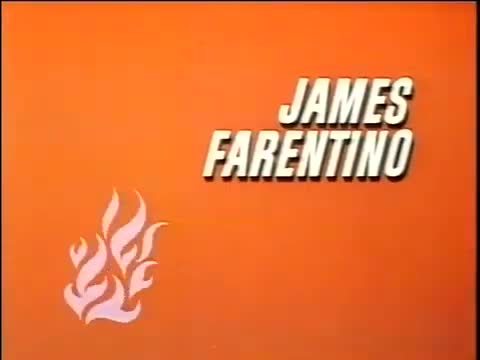




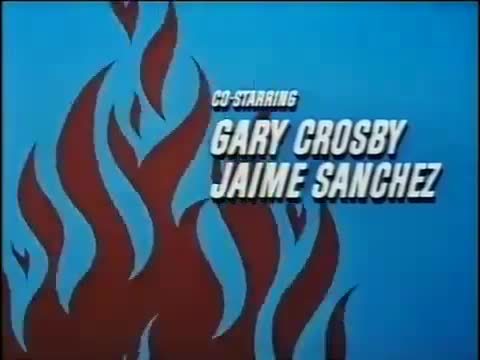


Wings of Fire - NBC - February 14, 1967
Action / Drama
Running Time: 99 minutes
Stars:
Suzanne Pleshette as Kitty Sanborn
James Farentino as Taff Malloy
Lloyd Nolan as Max Clarity
Juliet Mills as Lisa
Jeremy Slate as Hal Random
Ralph Bellamy as Doug Sanborn
Gary Crosby as Scott
Jaime Sánchez as Luis Passos
#Wings of Fire#TV#Action#Drama#NBC#1960's#1967#Suzanne Pleshette#James Farentino#Lloyd Nolan#Juliet Mills#Jeremy Slate#Ralph Bellamy#Gary Croby#Jaime Sanchez
3 notes
·
View notes
Text
Books Read, May 2023
I've thought of starting a book blog before, but alas - I never have enough to say when I don't have someone to bounce off of, or at least can't figure out how to say it. Plus, I mostly read nonfiction, so...probably not the most thrilling reviews. In lieu of that...here's what I read in May.
Courting Scandal: The Rise and Fall of Jane Boleyn, Lady Rochford - James Taffe
Jane Boleyn: The True Story of the Infamous Lady Rochford - Julia Fox
Young and Damned and Fair: The Life of Catherine Howard, Fifth Wife of King Henry VIII - Gareth Russell
Inside the Tudor Court: Henry VIII and His Six Wives Through the Writings of the Spanish Ambassador Eustace Chapuys - Lauren Mackay
Wolsey: The Life of King Henry VIII's Cardinal - John Matusiak
Cardinal Wolsey - Mandell Creighton
Remembering Wolsey: A History of Commemorations and Representations - J. Patrick Hornbeck II.
The Life and Death of Thomas Wolsey Cardinal: Once Archbishop of York and Lord Chancellor of England - Sir William Cavendish
Obviously, I got 'on a tangent,' as I do sometimes. I've gathered this may have something to do with the ADHD, though not from particularly official sources, so don't quote me on that. In this case, it was partially a return to old tangents; while I'd not read the last three books on this list before, my reading journal indicates I previously went on a bit of a tangent on the subject of Cardinal Wolsey in February and March of 2021. I was also immensely pleased, in my Kindle recommendations earlier this month, to find a book on Chapuys; he was always one of those background figures in the historical fictions I read as a kid that I wished I knew more about. Gotta read his letters myself sometime, since it seems, from the Google, that they can be viewed online in English translation.
I'll give Lauren Mackay this: she's much more honest than a lot of authors are when she reached places where the information simply no longer exists, or at least hasn't been recovered yet. There was enough 'prose' to keep it interesting, but not excessive attempts to state things about the ambassador that she couldn't back up with evidence. This, I felt, was in sharp contrast to Julia Fox; I loved the descriptions of the court, the attempts to tell a story, and these things definitely have a place in history-writing, but here they were fairly blatantly...fluffy, I suppose. Now, I'm hardly one to complain of fluff, rather fond of soft things myself, but it was glaringly obvious, when she said Lady Rochford must have been thinking or feeling something, that she was essentially filling in the blanks with a story of her own devising. Sometimes the 'costume' of historicity the text wore was something it looked 'comfortable' in and sometimes it was quite obviously a poorly-researched French hood shoved awkwardly onto the head of an actress with zero knowledge of sixteenth century fashion and how to wear it, but there were always leaps from one point to another. In contrast to that, I felt that Gareth Russell balanced his reader-drawing prose fluff with his historical analysis much more adeptly when considering Catherine Howard; I've read his book more than once over the past couple of years and expect I'll read it again in years to come. I came away with no impression of James Taffe's work, alas, except that he clearly wrote his book as an exasperated rebuttal to Julia Fox; I was, unfortunately, very sleep-deprived when I read that, so I'll have to read it again sometime. My lack of sleep, however, is not why I read the rebuttal first and the book it was responding to second...even though I'd had Fox's book in my physical TBR shelves for several years and only stumbled across Taffe's the day I bought it. I'm told I've always had a tendency to do things in the wrong order and somehow make it work anyway, so why mess with a good system at this point?
As for one book being a rebuttal to another - here we come to one of my favorite things about reading history, which is to say, how often historians blatantly attack or support each other in their writing. In the last couple of chapters of Remembering Wolsey, I was irrationally delighted to see the author offer opinions on every book I read during my 2021 tangent as well as one of the ones I read this time around. It's amusing (to me) to sort of...get to know the different personalities: "hm, yes, I can see why someone would say that about Ives," or "yeah, I never did get Starkey's position on that, all things considered," or "ha, that was almost the exact same thing I said two years ago about Ridley!" It's...oddly cozy, I suppose.
Hornbeck was especially interesting as he wasn't writing about what happened - he was writing about the trends in how people have remembered what happened over the past few centuries. There were interesting thoughts on historical fiction throughout, especially near the end; that one may warrant a full independent review, if I can muster the energy to write it out. For now, however - there's all the reading I did in May.
#books#reading#reading in 2023#may reading#reading report#reading history#history#medieval history#renaissance history#cardinal wolsey#catherine howard#jane boleyn#rambles
4 notes
·
View notes
Text

Cannot wait to get stuck in to this. Let's all hear it for Jane 🙌🏻🏵️💜
#jane boleyn#lady rochford#james taffe#courting scandal: the rise and fall of jane boleyn lady rochford
3 notes
·
View notes
Text
I consider Twitter to be a net negative overall, but I think Twitter is a net negative when it comes to the historian's profession in particular.
Twitter allows the likes of Mickey Mayhew and James Taffe to spout nonsense in public and generally behave like overgrown children, where everyone can see.
And given the state of the arts and humanities... that's really not helpful right now.
Edit: My issue with Taffe is him taking negative reviews out of context to make himself look like the victim and throw a pity party.
#yes yes i know about david starkey#but he got like mcfired#so he at least looks like an outlier#more normal babyish behaviour is more believable
12 notes
·
View notes
Text
THIS IS A SAD STORY 😔
« anyone who has ever struggled with poverty knows how extremely expensive it is to be poor » James Baldwin
quand je vivais avec ma mère, je vivais en contiguïté avec la précarité. elle faisait presque partie de la famille. comme une sœur ou un frère de plus à gérer.
une femme noire, antillaise, célibataire, mère de 8 enfants avec un taff de femme de ménage, bien sûr que tu galères. que j’ai galéré et qu’on galère encore. ma mère n’était pas trop présente, elle travaillait 5 jours par semaine en 35 heures. impossible de t’occuper d’enfants dignement. elle n’avait tout simplement pas le temps pour ça. quand elle avait du temps pour ça, elle se reposait, fatiguée d’une longue semaine à travailler. c’est en ça que le capitalisme et la précarité broient des familles entières.
c’était vraiment dur et y repenser là comme ça et l’écrire me fait monter les larmes aux yeux. no pathos.
j’ai pleins de souvenirs qui me reviennent comme ça parfois. l’appartement à Vincennes où une de mes sœurs dormait sous la table, celui de la Courneuve où table et chaises disparaissent le soir pour faire la place aux matelas. dormir avec ma mère jusqu’à très tard.
aucun enfant ne devrait vivre ce que j’ai vécu. l’instabilité financière, c’est tout pleins de choses. un enchaînement d’événements inévitables pour les personnes pauvres. elle s’est engouffrée dans ma vie jusqu’au moindre petit détail. je souffre encore aujourd’hui de ses conséquences.
c’est une vie de violence, de manque d’espace, de manque de tout, d’addictions, de prostitution, d’abus sexuels et j’en passe. la liste est longue. ceux-là j’arrive à m’en rappeler assez bien malgré les remparts protecteurs du déni qui se sont installés en moi. (c’était dur mais y’avait de l’eau chaude, sorry pour la belle perdue La Fouine.)
28 ans plus tard, je me retrouve dépendant affectif. avec une estime de moi pas stable, à ne pas savoir qui je suis vraiment, ce que j’aime, ce que je déteste, ce qui me met en colère, ce qui me révolte.
là j’écris tout ça et je comprend que la Gilda de mon enfance n’a jamais été épanouie, ni heureuse. il y a eu les quelques moments festifs, genre les anniversaires et les barbecues, qu’on adoré faire pour panser pendant quelques heures les plaies béantes de chaque membre de la famille. tout le monde avait des blessures. tous.
ils étaient sus de tous et tu de tous. on en parlé entre nous, comme un moyen de se rassurer qu’à côté c’est pire mais nous « tranquille, on s’en sort t’as vu ». mais tu peux pas t’en sortir comme ça, tu peux pas vivre et prospérer dans un environnement comme ça. j’ai jamais réussi. j’ai fait semblant pendant tellement longtemps. je me suis enfermée dans un silence qui devenait trop lourd à porter. je suffoquais.
j’ai dû fuir à l’autre bout de la France pour voir ce que c’était de vivre pour moi. j’y arrive tant bien que mal. je ne suis plus là Gilda de mon enfance, seule, apeurée, silencieuse, préoccupée par le bien-être de ma mère. je n’ai plus à l’être et ça me rassure. c’est un fardeau trop lourd de devoir s’occuper d’un adulte d’une 60aines d’années. je culpabilise moins de penser à moi.
2 notes
·
View notes
Text
Old Fanfic Rambles #1
I’m unsure how many reading this are a fan of the Harvest Moon series. One of the very DS games I got was Harvest Moon Grand Bazaar. I have fond memories of staying up on Christmas Day playing it until the very early hours of the morning. It introduced me to the endless joy of farming simulators.
But how does that relate to Kirby? Or Taff, for that matter?
Growing up (and even now), I had a tendency to combine my interests into one. Whether or not the separate properties involved worked well together did not matter to me.
When I was writing Taff as a child, I had a hard time coming up with a proper personality for her. But, I wanted to write in some drama. “Angst”, if you will. So I began to think of how I could do that. A villain coming across as charming and witty, only to reveal himself as a monster sounded good to me at the time.
But who would this monster be?
My only frame of reference for charismatic at the time was James from Team Rocket… and a certain bachelor from Harvest Moon DS Cute.

Phantom Skye.
For those who have not played Harvest Moon before, Skye is meant to be the “bad boy” bachelor in the game. He has a reputation around the valley for stealing. The game’s manual even tells you outright that he’s going to try and “steal your heart”.
I thought Skye was everything as a child. Unfortunately, the conditions to get married in the earlier Harvest Moon games were VERY VERY high and I could never reach them. Mostly because I did not play the game as intended, but that’s beside the point.
I decided I would literally just steal Skye as my villain. I wrote him into the story and gave him his own monster form which I don’t remember. I think it was some kind of wolf due to my obsession with Wolfwrath.
The fanfiction has unfortunately been lost to time, but I think King Dedede ordered the monster specifically to mess with Taff. Keep in mind that I hadn’t established a reason yet for King Dedede to single Taff out yet. I wouldn’t come up with Taff foiling King Dedede’s plans directly for years until much later.
The monster, Skye, comes to Cappytown in a similar way Mr. Chip did in Episode 83. He just shows up and Taff instantly fell for him. I think even at the time younger me realized this didn’t make sense, so I played up his charismatic abilities. Like, he was forcing her to take an interest in him. Yikes!
The rest of the fanfiction is the two of them messing around UNTIL Meta Knight revealing that Skye was a monster the whole time! Taff is betrayed by this revelation, Skye, on the other hand, is not remorseful. There’s a fight scene where Taff actually literally murders him and then the fanfiction ends.
So how did people take it?
The reception was decent, surprisingly! I did, however, get ONE comment from someone who DIRECTLY called me out for straight up ripping Skye from Harvest Moon. I remember PMing them on fanfiction.net, don’t recall why, but we actually became friends. We roleplayed Harvest Moon and Kirby characters in PMs a few times. They were active on Tumblr at some point but I lost contact with them a long time ago…
Maybe they’ll see this post and we can reconnect! Fingers crossed!
Anyway, I regret not archiving my old work. This is a message to all artists to archive your work. Drawings, writing, keep it for yourself so you can look back on it years later.
0 notes
Note
What are your thoughts on Jane Boleyn, and the role she supposedly played in the fall of 3 Queens (Anne Boleyn, Anna of Cleves, Katheryn Howard)? Do you think she has been too maligned by historians for centuries, especially when it comes to the relationship with the Boleyns (it seems she got along with Anne)?
Now that I've read both works and compared them side by side, I suppose I would say my stance on Jane Boleyn falls somewhere in between that of Julia Fox and James Taffe ('Somewhere in between' is not, btw, Alison Weir); although closer to the former than the latter. Offering critique of both biographies, I would say that of JF is too apologetic (smoothing out wrinkles that exist in her arguments rather than acknowledging them) and JT is too severe.
Especially when it comes to the relationship with the Boleyns? Yes and no. Obviously she was married to George, she sent him a message of comfort while he was in the Tower, and wore only black the rest of her life, which was quite the potent statement. However, I would allow for the possibility that she potentially, inadvertently implicated him or AB (ie, testimony of hers was twisted to suit the crown's case). This is where I think there are flaws in the arguments of some of her defenders-- they cannot allow for even that possibility and so make claims that disallow it; some of which are untrue. 'Jane was only blamed as a means of absolving Henry in the whitewash of Elizabethan propagandists' is not true. Johannes Sleidan in 1545 claimed that Anne and George died by her 'false accusation'. Sleidan was a Reformer, so he would have been more sympathetic towards the plights of these two than the average person, and would have spoken to others that were as well, but the motivation to vindicate Elizabeth did not yet exist; she was at this point the very unlikely third in line to the throne.
I do appreciate that you said 'got along' with Anne, not 'besties', because...it's possible they were very close, certainly, but we must also allow for the possibility of animosity. The linchpin for the argument of closeness is the report from Chapuys that they 'conspired together' to banish Henry's mistress from court. Was this the precise truth? Considering the source I'm doubtful. Probably there was a lady Henry was serving at this time (although that we never have a name makes the story somewhat suppositious), but did they need to have 'conspired together' against her for Jane to be banished from court (which is what happened instead)? Jane might have merely made Anne aware of her, and Henry finding out that she'd been the source would have been enough for banishment. Or, as was presented plausibly in Adrienne Dillard's fictional rendition, Jane might have dropped hints to Cromwell that this mistress was a supporter of the two exiled and contumacious royal women that were Anne's adversaries, Cromwell might have passed this along to Henry, and Henry might have banished Jane for shattering the illusion that this woman had no independent ambitions or ulterior motives and merely let him hit for the sheer pleasure of his company.
If this was evidence of closeness, and it might be, then we also have to remember that the end result was Jane's banishment from court, and that there is, as JT fairly pointed out, no evidence that any of the Boleyns spoke in her defense, favor, or for her return. It would take an extremely magnanimous person to accept all that with equanimity and not feel any resentment whatsoever. So, if there was intimacy, there might have also been rift.
That leaves the question: enough 'rift' for her to seek vengeance? I doubt that much for all the reasons Fox outlines in her biography, but at the same time I wish there was not this relentless push to only defend women that we assert 'deserve' defense, on the premise they were entirely selfless, accepted every insult with grace, never kept any grudges, never had personal ambitions (the actions she took during the queenships of those you mentioned would suggest otherwise), mixed emotions, or conflicting loyalties; that we could acknowledge that acknowledging the agency of historic women also means acknowledging they were capable of making mistakes.
#anon#it feels like an 'overcorrection' to some degree. if that makes sense?#altho that's generally what ppl say about AB too and i generally think they're wrong lol#'waaah AB apologism waaaaahhh joanna denny wahhhhhhhhhhhh h/ayley nolan'#bitch. no one serious is taking those seriously. if joanna denny was the definitive AB bio that would be one thing#the definitive is eric ives who oh no said in his personal opinion that his favorite was more attractive in personality and appearance#than the other...oh my god that is the worst thing anyone has every said in the HISTORY OF TIME#are y'all this sensitive in real life bcus fr.#how do you bitches SURVIVE..................#anyway what i was initially going to say after coming back to this:#*ever#like the way this figure is used to have it both ways really bothers...me?#i think there's some ambiguity here but like#i read someone claim that JS must have been 'so sweet' bcus otherwise JB would not have been her lady in waiting....#which is like. be fr? if JB loved george and anne she would have hated her lol#or at the very least have been uneasy in her presence (there's a great scene with this in adrienne's sequel btw)#but like...idk man. ppl just don't seem to get how humans worked? or have any sort of emotional; media; literal; literacy?#this was my thing with BSR too 'how dare THEY say henry NEVER loved coa how dare THEY say jane was to blame for anne's miscarriage'#like right...were 'they' saying that or was anne? or was that what anne believed? was the show perhaps from her (gasp) POV and so#these things were portrayed? i mean ffs.... by our literal primary sources those were the things she said.#someone's emotions and beliefs /= infallible unassailable entire truths#nor are they necessarily 'fair' and the same with our judgements. welcome to being a human being#so yeah like re: JB....#*that she felt like that? was it entirely fair to blame and resent the seymours?#is that necessarily fair? no. how much she did or didn't was probably dependent on how accurate chapuys report was about JS#the extent to which she had disparaged anne#as for the why as JF theorized ; the need of income and the possibility that since cromwell had helped her with income#this was the favor he wanted in return (so her as a spy in the household)#and re: conflicting loyalties ; i mean ...goddamn; people are complex#i think it's entirely possible that JB loved anne but also had this innate sympathy for coa and mary too.
12 notes
·
View notes
Text
La précarité
THIS IS A SAD STORY
« anyone who has ever struggled with poverty knows how extremely expensive it is to be poor » James Baldwin
quand je vivais avec ma mère, je vivais en contiguïté avec la précarité. elle faisait presque partie de la famille. comme une sœur ou un frère de plus à gérer.
une femme noire, antillaise, célibataire, mère de 8 enfants avec un taff de femme de ménage, bien sûr que tu galères. que j’ai galéré et qu’on galère encore. ma mère n’était pas trop présente, elle travaillait 5 jours par semaine en 35 heures. impossible de t’occuper d’enfants dignement. elle n’avait tout simplement pas le temps pour ça. quand elle avait du temps pour ça, elle se reposait, fatiguée d’une longue semaine à travailler. c’est en ça que le capitalisme et la précarité broient des familles entières.
c’était vraiment dur et y repenser là comme ça et l’écrire me fait monter les larmes aux yeux. no pathos.
j’ai pleins de souvenirs qui me reviennent comme ça parfois. l’appartement à Vincennes où une de mes sœurs dormait sous la table, celui de la Courneuve où table et chaises disparaissent le soir pour faire la place aux matelas. dormir avec ma mère jusqu’à très tard.
aucun enfant ne devrait vivre ce que j’ai vécu. l’instabilité financière, c’est tout pleins de choses. un enchaînement d’événements inévitables pour les personnes pauvres. elle s’est engouffrée dans ma vie jusqu’au moindre petit détail. je souffre encore aujourd’hui de ses conséquences.
c’est une vie de violence, de manque d’espace, de manque de tout, d’addictions, de prostitution, d’abus sexuels et j’en passe. la liste est longue. ceux-là j’arrive à m’en rappeler assez bien malgré les remparts protecteurs du déni qui se sont installés en moi. (c’était dur mais y’avait de l’eau chaude, sorry pour la belle perdue La Fouine.)
28 ans plus tard, je me retrouve dépendant affectif. avec une estime de moi pas stable, à ne pas savoir qui je suis vraiment, ce que j’aime, ce que je déteste, ce qui me met en colère, ce qui me révolte.
là j’écris tout ça et je comprend que la Gilda de mon enfance n’a jamais été épanouie, ni heureuse. il y a eu les quelques moments festifs, genre les anniversaires et les barbecues, qu’on adoré faire pour panser pendant quelques heures les plaies béantes de chaque membre de la famille. tout le monde avait des blessures. tous.
ils étaient sus de tous et tu de tous. on en parlé entre nous, comme un moyen de se rassurer qu’à côté c’est pire mais nous « tranquille, on s’en sort t’as vu ». mais tu peux pas t’en sortir comme ça, tu peux pas vivre et prospérer dans un environnement comme ça. j’ai jamais réussi. j’ai fait semblant pendant tellement longtemps. je me suis enfermée dans un silence qui devenait trop lourd à porter. je suffoquais.
j’ai dû fuir à l’autre bout de la France pour voir ce que c’était de vivre pour moi. j’y arrive tant bien que mal. je ne suis plus là Gilda de mon enfance, seule, apeurée, silencieuse, préoccupée par le bien-être de ma mère. je n’ai plus à l’être et ça me rassure. c’est un fardeau trop lourd de devoir s’occuper d’un adulte d’une 60aines d’années. je culpabilise moins de penser à moi.
0 notes
Text
youtube
There are two types of smoke alarm. One of 'em ain't so good.
Which one is better? Now that's a burning question. Also, don't start tearing apart smoke alarms and playing with the americium. It's mostly harmless when outside your body but if it gets in there can be trouble. Links 'n' stuff: The 60 minutes programme; https://www.youtube.com/watch?v=LT6pFzyAov8 Technology Connections on Twitter: https://twitter.com/TechConnectify The TC Subreddit https://ift.tt/9v0ETLH This channel is supported through viewer contributions on Patreon. Thanks to the generous support of people like you, Technology Connections has remained independent and possible. If you'd like to join the amazing people who've pledged their support, check out the link below. Thank you for your consideration! https://ift.tt/DVqUkPl Oh, and look at these wonderful patrons! Hargrimm , jay, Syber-Space, Todd Johnson, Nuki Chau, Chris & Anne Nash, Jordi Pakey-Rodriguez, Jim Moores, Ryan Wallmow, Roger Melo, AuroranFilms, RegalRegex, Michael Lehenbauer, James Manes, Mihaly Barasz, Potatoots, Mark Johansson, Lee Dedmon, Berwin Xie, Grey Hodge, Jim Kropa, Tony B, David Collins, Alex Carbone, Ben Golus, Tim Doering, Jonathan Grayum, Kodi , Colin Chan, Mark Komarinski, Jeff Groves, Ryan McLaughlin, J.P. Stewart, NADAV GERBER, Zac Schmitt, Bryce Swearingen, Nathan Fenner, Rittycat , Huub Heijnen, Joseph Dion, Jim Sells, Dustin Gilyard, KoolJBlack, nils m, Damione Moore, Jeremy Weeks, Carolyn Gerakines, Cameron Ross, samukaisan, Kyle Boreing, Ben Waxler, Jason Fortezzo, Andreas Neidlinger, Jason Stonehouse, Andy Warren, Rowan Parker, Steven Dubnoff, Keaton Mowery, Brett and Eric, Alexander Koch, Alipasha Sadri, Jimmy2Guys , Dash Buck, Christopher Schreiber, R. Anthony Lorensen, glw, Adam Zaner, Bob , Emil , Dad , Holden Higgins, Zach Orum, HJ, michael waddle, Tayler Heaney, Ryan, Nate Tangsurat, Jim Cavoli, Scott Waldron, Lars Naurath, Mike SoRelle, BabyET, Nick Blair, Richard Stephens, Ken Kasal, Bryce Chidester, Philip Buonadonna, BoneDepot, Barbara Ganschow, Amanda , Andy , Inkydink , Colin Mutter, Ray Everett, Connor Taffe, Nope, Todd Hawk, Rich Delgado, Brian Hamilton, Caius Worthen, Justin Byers, Falldog , Scott 'Funnyjk', David Guerrero, John Feldman, Ted Ledbetter, Tobias Putz, Caytlin Vilbrandt, Alex Rich, Geo (Overand), Nikhill Rao, Robert Fletcher, William PS, Douglas Geusz, Alexane Desbiens, Nick Kourpias, stateless.eth, Benhart, Sammy Newton, Lew Zealand, Shaitageth, Mason DeBord, Jarocks, Benjamin Richards, Chris Brosz, Stewart , Kyle Burton, Jonas, Woofy, Russell Grant, Dan Simon, cparks1000000 , Kyle, false, David Glover-Aoki, iPaq, Peter Murray, probnot, Mike West
via YouTube https://www.youtube.com/watch?v=DuAeaIcAXtg
0 notes
Link
He's just broken the nation’s hearts as the tragic anti-hero of BBC One’s Sunday-night sensation The Trial Of Christine Keeler – but James Norton’s next role has made the heartthrob actor “proud to become an honorary Welshman”.
In the title role of new film Mr Jones, Norton – already a favourite with bookmakers to be the next James Bond – takes on one of the most challenging projects of his career, playing a real-life yet forgotten hero from Wales who dared to combat and uncover one of history’s most shameful episodes of “fake news” from nearly a century ago.
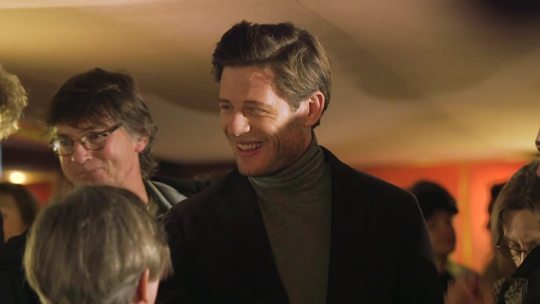
James Norton at the Mr Jones screening at the London Film Festival
“Playing Gareth Jones was sometimes a tough call,” says 34-year-old Norton, known to millions from small-screen hits Grantchester and Happy Valley.
“In fact, when I first got the part and they told me it was going to be a Welshman who spoke both fluent Welsh and Russian, and all of it in a Welsh accent – that felt a bit scary!”
He needn’t have worried. As Gareth Jones, the mild-mannered young Western Mail reporter who travelled to Russia in 1933 and ended up blowing the whistle over the appalling truth about Stalin’s “Utopian” regime – and a hushed-up famine that killed untold millions – Norton presents us with a charming, softly-spoken hero with just a hint of a refined Welsh lilt.
It’s a million miles from those cliched, grating attempts at Welsh accents so often taken on by other English actors. ( Stephen Graham’s DCI “Taff” Jones in ITV’s White House Farm, anyone?).
Reports have emerged this week of Gareth’s great-nephew attacking the film for having “invented multiple fictions” – but as far as Norton is concerned, he feels the film stands as an honest and heartfelt reflection of Gareth’s character and incredible yet fatefully short life.
“We decided it was important to respect and honour Gareth’s journey – this Welshman from a small coastal town who ended up on this huge, bizarre and brave mission taking on one of the pillars of the 1930s political landscape in a very dangerous, pre-war Communist Russia,” says Norton, who worked with two Welsh dialect coaches to perfect his accent.
“So it made sense that Gareth would have maybe intentionally softened his Welsh accent, having been educated at Cambridge, in order to ingratiate himself in the community and then travelling the world. We wanted to keep it there without making it too distracting.”
Nevertheless, Norton – London-born but raised in North Yorkshire – was still required to speak Welsh in a few scenes, and Russian as well.
“I’ve never spoken either language before and I’m not a linguist – so I had my work cut out,” says Norton, who can also currently be seen on the big screen in the Oscar-nominated hit movie Little Women.
“But for those few months, I was very proud to become an honorary Welshman. My scenes with Julian Lewis Jones as my dad – when Gareth goes home to Barry – were challenging, but Julian was amazing helping me with my Welsh.
“Julian occasionally texts me in Welsh now, which is hilarious, as I think he’s forgotten I don’t actually speak a word!
“It’s pretty nerve-racking doing scenes where you’ve got to speak in a particular accent opposite someone who’s completely fluent in that language, so to have Julian put his hand on my shoulder and say, ‘You’re doing good, kid!’ was so reassuring.”
Learning dialogue for his Russian scenes was even harder.
“I had to learn all the Russian phonetically – it’s like learning music,” he explains. “I’d spend hours walking around wearing earphones and I’d look like a crazy person talking to myself, repeating phrases animatedly. But now I have Russian people coming up to me in the street, speaking Russian at me!
“Weirdly, I’ve done three jobs where I needed to speak Russian – War And Peace, McMafia and now this. I seem to have become the go-to guy for English-speaking Russian roles!”
The new film Mr Jones, directed by internationally-renowned Polish film-maker Agnieszka Holland, begins with Gareth Jones gaining fame in the early 1930s after his report on being the first foreign journalist to fly with Hitler.
Gareth, who’d graduated from Trinity College, Cambridge, in 1929 with a first-class degree in French, German and Russian, has also landed the job of foreign affairs advisor to former Prime Minister David Lloyd George.
With the Russian “utopia” all over the news, Gareth is intrigued as to how Stalin is financing the rapid modernisation of the Soviet Union and in March 1933 he decides to travel to Russia in an attempt to get an interview with Stalin himself.
However, on hearing murmurs of a government-induced famine – a secret carefully guarded by the Soviet censors – Gareth travels clandestinely to Ukraine, where he witnesses the atrocities of man-made starvation, as all grain is sold abroad to finance the Soviet empire’s industrialisation.
Deported back to the UK, it’s the Western Mail that publishes Gareth’s article revealing the horrors he has witnessed, but the starvation is denied by Western journalists based in Moscow, all under pressure from the Kremlin. As death threats mount, Gareth has to fight for the truth – and, meeting a young author called George Orwell, Gareth shares his findings... helping to inspire Orwell’s great allegorical novel Animal Farm.Gareth’s great-nephew Philip Colley made headlines recently, accusing the film’s scriptwriter of “inventing multiple fictions”, including wrongly suggesting he was an accidental cannibal.
Colley told the Sunday Times: “In the film, they have got [Gareth] up a tree eating bark, eating human flesh, tripping over dead bodies. They’ve made Gareth a victim of the famine, rather than a witness.”
Norton, however – interviewed prior to Colley’s remarks – says he received plentiful support from a number of Gareth’s surviving relatives, who came to early screenings of the film.
“They were all lovely in their support and they gave us their seal of approval, which was very touching,” recalls Norton.
“Our film’s screenwriter, Andrea Chalupa, was in touch with a lot of them early on. There’s so much literature and academia about Gareth’s work as a journalist, but Andrea found out some lovely titbits about his more private character.
“For example, when he went home to Barry he’d love being with his nieces and nephews and he became a big kid. His great-aunt told Andrea about one day when he came back home and he was rolling around with them like a labrador. That kind of story was invaluable to me.
“He wasn’t just this very earnest, principled man, there was a childlike, playful quality to him and he was almost a little bit gauche, a little bit awkward. You also want to honour his memory for his family.”
The main source of the film is a biography of Jones entitled More Than A Grain Of Truth, written by Gareth’s niece Dr Margaret Siriol Colley (Philip’s mother) and his great-nephew Nigel Colley (Philip’s brother), both of whom share a credit as the film’s historical advisors.
The book sparked Chalupa’s interest and she started corresponding with Margaret Colley soon after its publication. When Margaret died in 2011, aged 85, Chalupa remained in contact with her son Nigel, who became “heavily involved” in discussing ideas for the film. Nigel died in 2018.
Filmed predominantly in Poland, homeland of Warsaw-born director Agnieszka Holland, Mr Jones does contain some breathtaking snowbound scenes shot in Ukraine, where Gareth gets first-hand sight of the horrendous famine.
“We filmed in a tiny little place called Doch, which is three hours north of Kiev, in the middle of nowhere,” says Norton. “We’d drive for hours on these very unsafe roads, jangling your bones around. It was freezing cold in the snow.
“It was so remote that we had to put the word out to local farmers to come along as extras and we had a strict cut-off time – we had to wrap up at 5pm because they all had to go back and feed their animals!”
When it came to filming the scenes in Wales – notably Barry and the Western Mail’s offices in the film’s gripping finale when Gareth’s whistle-blowing scoop hits the presses – Norton reveals: “I’m really sorry to say they’re all filmed in Scotland! About an hour north-east of Edinburgh. A lot of those villages there have a quality of that small fishing town, for the Barry scenes.
“The other reason is that the film is partly funded by Creative Scotland and there’s that responsibility you feel to film there. But I think it worked well. It was a shame not to film in Wales, but we had a fantastic collection of Welsh players there, including Julian, so it felt home from home.”
Agnieszka Holland, of course, is not the first female director to work with Norton. He acted under the helm of Greta Gerwig on Little Women and with a largely female crew on the six-part TV drama The Trial Of Christine Keeler, which finished last Sunday, earning him rave reviews for his heartbreaking performance as Stephen Ward, the tragic scapegoat figure in the Profumo affair which brought down the UK government in the early 1960s.
“I’ve not gone out of my way to work with female directors, but I have great agents who always look for the best projects – but I really hope it’s a sign of the times,” he says. “The Christine Keeler story has never been properly told from a female perspective before, so that was the real attraction. Agnieszka, meanwhile, is the best of the best – the fact that she’s a woman is almost irrelevant.”
How does he feel about the fact that Greta Gerwig has been denied a Best Director Oscar nomination for her lauded version of Little Women, in which Norton plays eligible suitor John Brooke to Emma Watson’s Meg March?
“I can stand as witness to Greta’s brilliance and the fact that Little Women is up for Best Film and Screenplay is testament to her brilliance,” says Norton. “She singlehandedly redefined the story for a modern generation and it would have been wonderful to honour that in the nominations for direction – so it’s a horrible and unfortunate omission.”
It was while starring in McMafia, the gritty 2018 BBC1 thriller series with scenes of him bow-tied and gun-toting, that Norton’s name was first added to the list of contenders to play James Bond when Daniel Craig retires from the role after the next 007 movie No Time To Die. Remind him of that now and he laughs it off.
“It’s very humbling, it’s lovely and bizarre to be included in that conversation, but beyond that it’s all very speculative,” he says. “I think at the moment everyone’s concentrating on Daniel Craig in his final Bond film – for me, he’s a fantastic Bond and I’m sad he’s retiring.”
Right now, however, it’s Mr Jones and the legacy of that film’s largely unsung Welsh hero that are uppermost in Norton’s agenda. Tragically, Gareth Jones’ life was cut short on the eve of his 30th birthday in 1934, when he was allegedly shot by Mongolian bandits while travelling in Japanese-occupied China on a fact-finding tour.
“There’s much speculation about Gareth’s death at such a young age and there was a lot of evidence suggesting that it was orchestrated by the Soviet forces as revenge for his blowing the whistle on the hidden famine,” says Norton.
“His stories in the Western Mail were incredibly important. The more we can learn about Gareth Jones and recognise his extraordinary legacy, the better. And the fact is that right now, as politics becomes more polarised, we need more people like Gareth – investigative journalists to uncover the truth, with no ideological agenda attached.
“If this film encourages any future young Gareth Jones, then that’s fantastic. It’s a crime we don’t know more about these forgotten events and hopefully this film will remedy that.”
16 notes
·
View notes